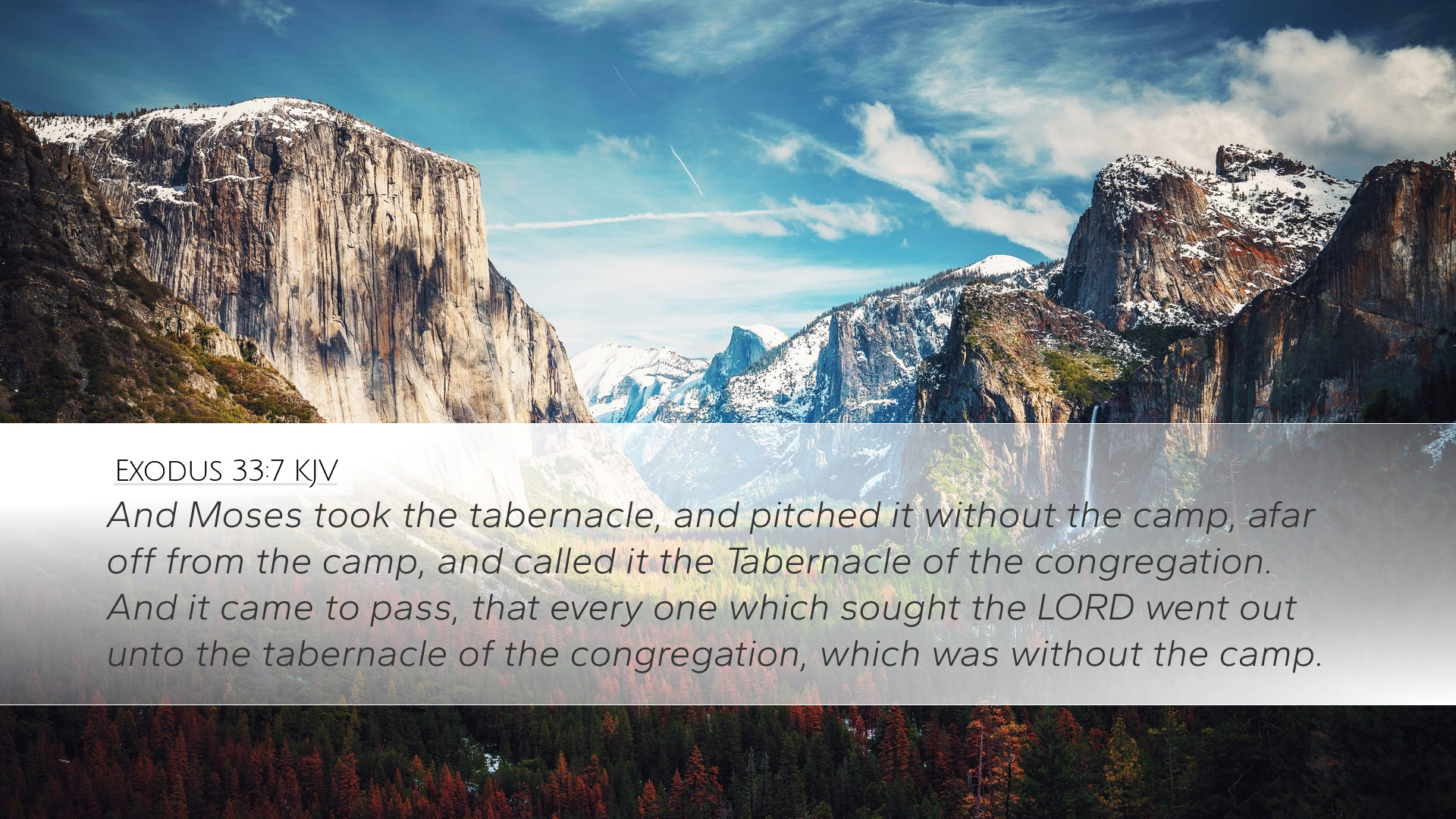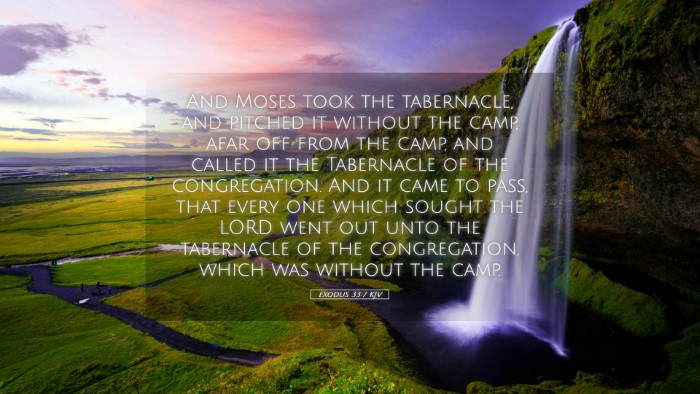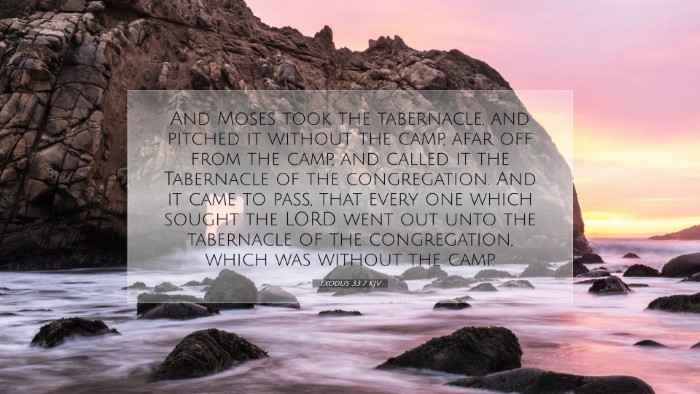Exodus 33:7 Commentary
Bible Verse: "Now Moses used to take a tent and pitch it outside the camp, far off from the camp, and he called it the tent of meeting. And everyone who sought the LORD would go out to the tent of meeting, which was outside the camp." (Exodus 33:7 ESV)
Introduction
Exodus 33:7 sets the stage for understanding the relationship between God and His people during a pivotal moment in the history of Israel. This verse provides insight into Moses' leadership and his unique role as a mediator between God and the Israelites. This section grooms students of the Word into an exploration of the implications of this "tent of meeting" for both Old and New Testament understandings of God's presence and communion with His people.
The Significance of the Tent of Meeting
Albert Barnes emphasizes that the "tent of meeting" was a significant symbol of God’s desire to dwell among His people. Moses established this tent as the place where he could meet with God, which is a foreshadowing of the later Tabernacle and, ultimately, the coming of Christ as Immanuel—God with us.
Adam Clarke points out that the separation of this tent from the camp illustrates the holiness of God. In a profound way, it reflects the necessity for the Israelites to come out of their common life to meet with God, revealing that true communion with God requires a setting apart from the mundane and possibly sinful aspects of daily living.
Contextual Background
Matthew Henry recounts that this part of Exodus occurs after Israel's grievous sin of idolatry with the golden calf. It serves as a reminder that sin has consequences and creates a distance between God and His people. The tent of meeting thus becomes a symbol of repentance and a place for seeking God’s restoration.
Moses as Intercessor
Moses' role in this context cannot be overstated. In this position, he not only represents the people before God but also fulfills a type of Christ who intercedes for humanity. Henry notes that Moses' act of going to the tent was indicative of his role as a leader who exemplified a deep pursuit of God's presence and a desire to mediate for his people.
Barnes elaborates on this concept by suggesting that Moses' relationship with God was characterized by intimacy and frequent communication. He challenges the modern reader to consider their own commitment to be intentional in seeking the presence of God much like Moses did.
The Nature of Seeking God
This verse implies a call to action—an invitation for all who desire to know God to approach Him actively. Clarke notes that the act of going to the tent signifies a deliberate choice to seek after God's face rather than remain passive, underscoring the necessity of personal initiative in the spiritual journey.
Lessons and Applications
- Separation for Spiritual Pursuit: The physical distance of the tent from the camp reminds believers today of the importance of setting aside time and space for God amidst a busy world.
- Intentionality in Seeking: As God invites us to seek Him, we are called to be active seekers, going out of our way, as Moses did, to engage in meaningful relationship with Him.
- God’s Desire for Relationship: The establishment of the tent illustrates God's desire for direct interaction and relationship with His people, a theme that persists throughout Scripture.
Conclusion
Exodus 33:7 serves as a profound reminder of the nature of God and His willingness to engage with humanity. The act of Moses pitching the tent outside the camp opens a narrative that urges believers to seek after God earnestly and to understand the lengths to which God goes to facilitate a close relationship with His followers. The implications for pastoral ministry, theological education, and individual spirituality are immense, urging a deepened commitment to pursuing God in the 'tents' we create in our own lives.


